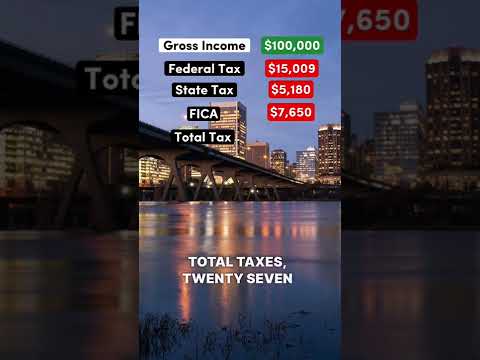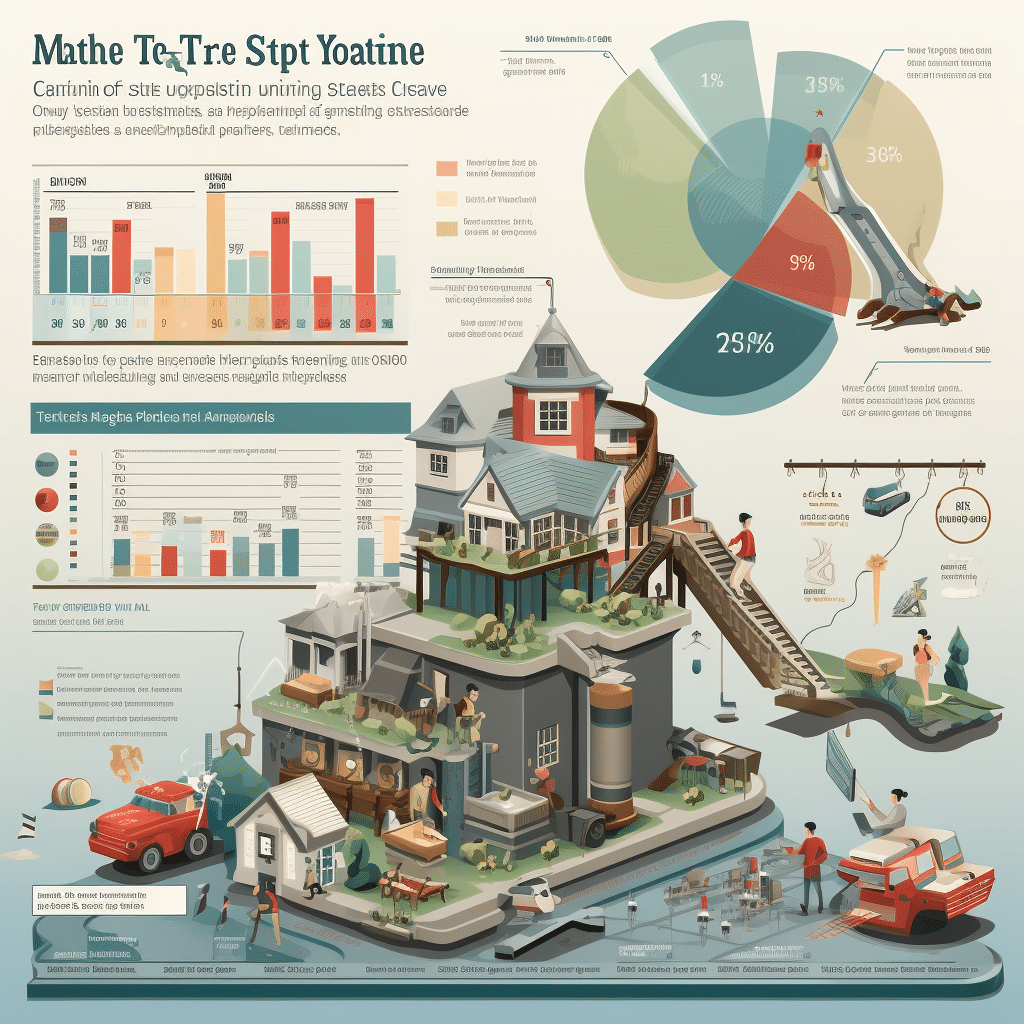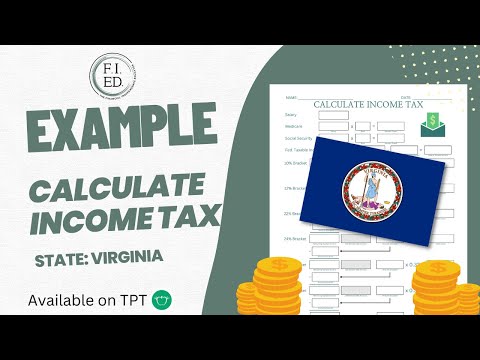What is the Virginia State Tax Rate? Hey there, fellow Virginians! Let’s dive into the sea of taxes and swim out to financial freedom by truly understanding Virginia’s state tax rate. “Downright mystifying” – this is how many Virginians describe the state’s taxing system. As your guide through this tax landscape, I am here to make it more relatable, manageable, and less of a hard nut to crack. Take a deep breath, and let’s take it from the top.

Brief Overview of Virginia State Tax Rate System
Virginia’s taxing system, similar to most states, is composed of various taxes, including income, sales, and property taxes. The central principle is simple: the more you earn or buy, the higher your tax obligations.
Progressive taxation, the principle that underlies the Virginia state tax rate, means higher earners fall into higher tax brackets and thus pay higher tax rates. While the system’s complexity may seem intimidating, understanding its structure and components can save you a pretty penny.

A Look at the Current Virginia Income Tax Rate
Virginia’s income tax is progressive – a fancy term that means that the more you make, the more taxes you kick in. From pocket change to bursting bank accounts, let’s jump into this financial river and flow through its stages together.
Progressive Income Tax in Virginia
A progressive income tax system is like an escalator – the higher you go, the more you pay. In Virginia, these rates range incrementally from 2% to 5.75%. The top rate of 5.75% begins at taxable incomes above $17,000, which means millionaires are in the same tax bracket as millions of Virginians with low and moderate incomes. If you’re on the higher end of that income spectrum, the Virginia tax calculator is your tech-savvy compass leading the way to your exact tax obligations.
Decoding Tax Brackets and Rates
The sum you pay depends on your tax bracket, like buying seats at a concert – better view, higher price. For instance, if your taxable income is below $3,000, you pay 2% in taxes. Hence, it’s crucial to understand your tax bracket.
Fear not, for like a family recipe slowly simmered to perfection, we’ll dissect these ingredients, leaving you savvier in understanding the Virginia state tax rate.

Common Questions about Virginia’s Tax Rate Answered
Virginia’s tax structure could feel like a labyrinth, but worry not, brave explorer! We’ve got you covered with answers to some burning questions.
What Is the State Income Tax Rate in Virginia?
As we mentioned previously, the state income tax rate in Virginia ranges from 2% to 5.75%. The tax brackets are structured so that the rate progressively increases with income levels.
Is Virginia State Income Tax High?
Well, beauty is in the eye of the beholder. While it may seem high compared to some states with no state taxes (like Florida), it’s lower than others like California, with rates as steep as 13.3% for top earners. It’s a wee-bit like the porridge in Goldilocks – to some, it might be ‘just right’!
How Much Is 100k After Taxes in Virginia?
On an income of 100k annually in Virginia, after accounting for state and federal taxes, you’d have net earnings of $72,550 a year or approximately $6,046 monthly. In other words, Uncle Sam takes his $27,451 share, and you get the remaining pie.
Is There a Local Income Tax in Virginia?
In Virginia, local income taxes are a no-go, with only state and federal income taxes applied. It’s a break that offers Virginians a bit of a breather.

7 Simple Tips to Lower Your Virginia State Tax Payments Quickly and Smartly
Alright, folks, time to roll up those sleeves and grab some insider tips on reducing that Virginia state tax rate burden. Ready to get your hands dirty?
Tip 1: Know Your Tax Bracket
The first step is mastering your financial landscape. Knowing your tax bracket allows you to strategize, plan, and play your cards right within Virginia’s unique tax framework.
Tip 2: Tap Into State Tax Deductions and Credits
When it comes to tax deductions and credits, it’s a literal harvest fest! From student loan interest to small business write-offs, these options can significantly slash your tax liabilities.
Tip 3: Pad Up Your Retirement Accounts
Retirement accounts like 401(k) and IRA are nifty tax-saving tools. The more you invest in these accounts, the more your taxable income shrinks, and thus the lower your virginia income tax rate.
Tip 4: Leverage Health Savings Accounts
A health savings account (HSA) is like a mini goldmine when it comes to deductions. You can make tax-free withdrawals for qualified medical expenses, thus lowering your overall taxable income.
Tip 5: Embrace Charitable Contributions
Charitable contributions aren’t just a solid move morally, but they’re also a smart tax decision. They reduce your taxable income and give you a feel-good boost at the same time – a real win-win!
Tip 6: Explore Property and Sales Tax Breaks
Virginia offers various property and sales tax breaks to homeowners and consumers, respectively. Much like how dior cologne offers different perfume notes, each break entails a distinct monetary advantage.
Tip 7: When in Doubt, Seek Professional Help
Last but not least, it’s crucial to realize you’re not alone in this tax journey. Plenty of tax professionals are willing to help you navigate through any bewildering tax maze.

Understanding Virginia’s Sales Tax and How It Impacts You
Now let’s hop over to the sales tax domain. Picture this – you’re out for a shopping spree, and each time you swipe that card, you’re reaffirming your tax citizenship!
Virginia’s General Sales Tax Rate Breakdown
Virginia has a general sales tax rate of 5.3% – 4.3% state tax and 1% local tax. And just like how a Hiit workout varies in intensity, the sales tax can differ depending on what you’re buying and where.
Talking Regional Differences and Additional Sales Taxes
Apart from the general sales tax, specific localities in Virginia can charge an additional regional sales tax. Understanding these differences can help you make savvy buying choices.
WV Sales Tax versus Virginia Sales Tax Rate
The WV sales tax has a relatively punier structure with the state sales tax at 6%. Comparatively, Virginia’s overall sales tax (general and regional) can reach up to 6% – again, the region you’re in plays a role.

Streamlining Your Journey through Virginia’s Tax Landscape
As we wrap up, remember that understanding the Virginia state tax rate isn’t as daunting as it may seem. With the right tips and tricks, it’s just another stepping stone on your path to financial stability.
Knowledge is power, and understanding how to navigate taxes can have you sailing smoothly through Virginia’s fiscal waters. As you progress, you might need more detailed info about mortgages in Virginia, or you might want to inquire, What Is an escrow advance ? Remember, the best strategy is always the one tailored just for you.
Good luck on your financial journey, Virginia! Stay money savvy and take the Largest va back pay you can muster! Knowledge is indeed power, and you now have the tools to tame the beast that is the Virginia state tax rate. Happy planning and here’s to nailing those lower payments!



